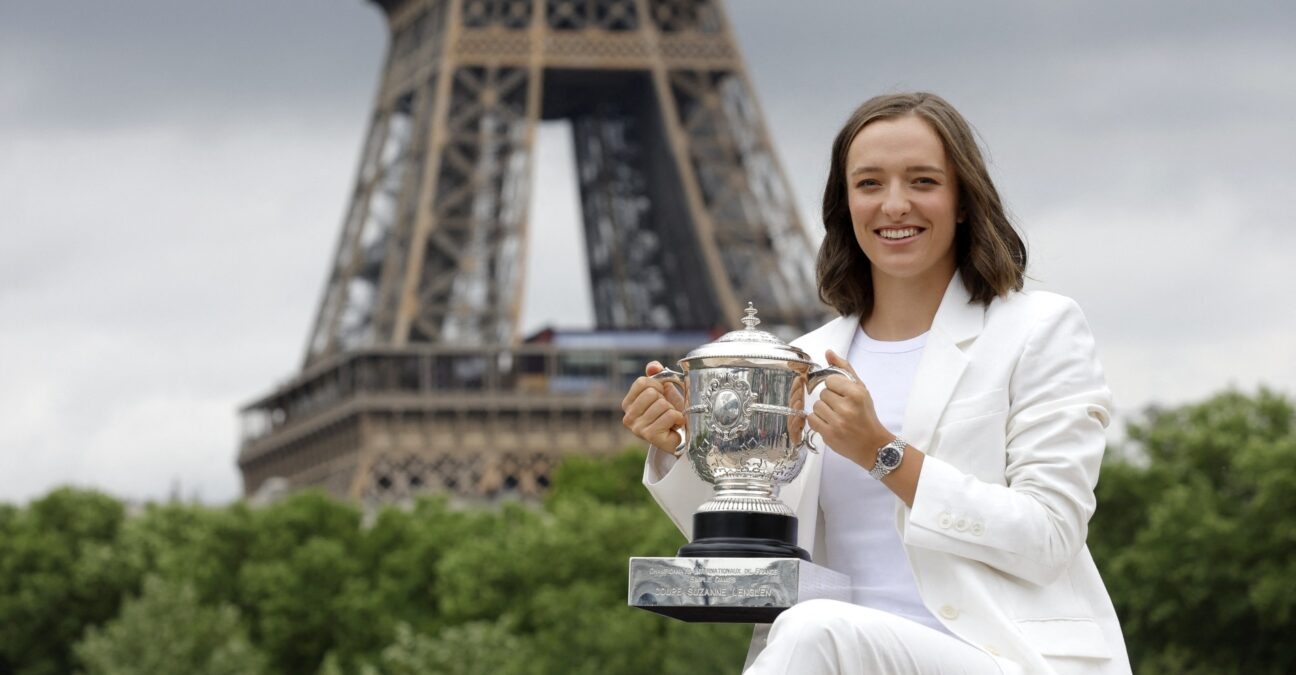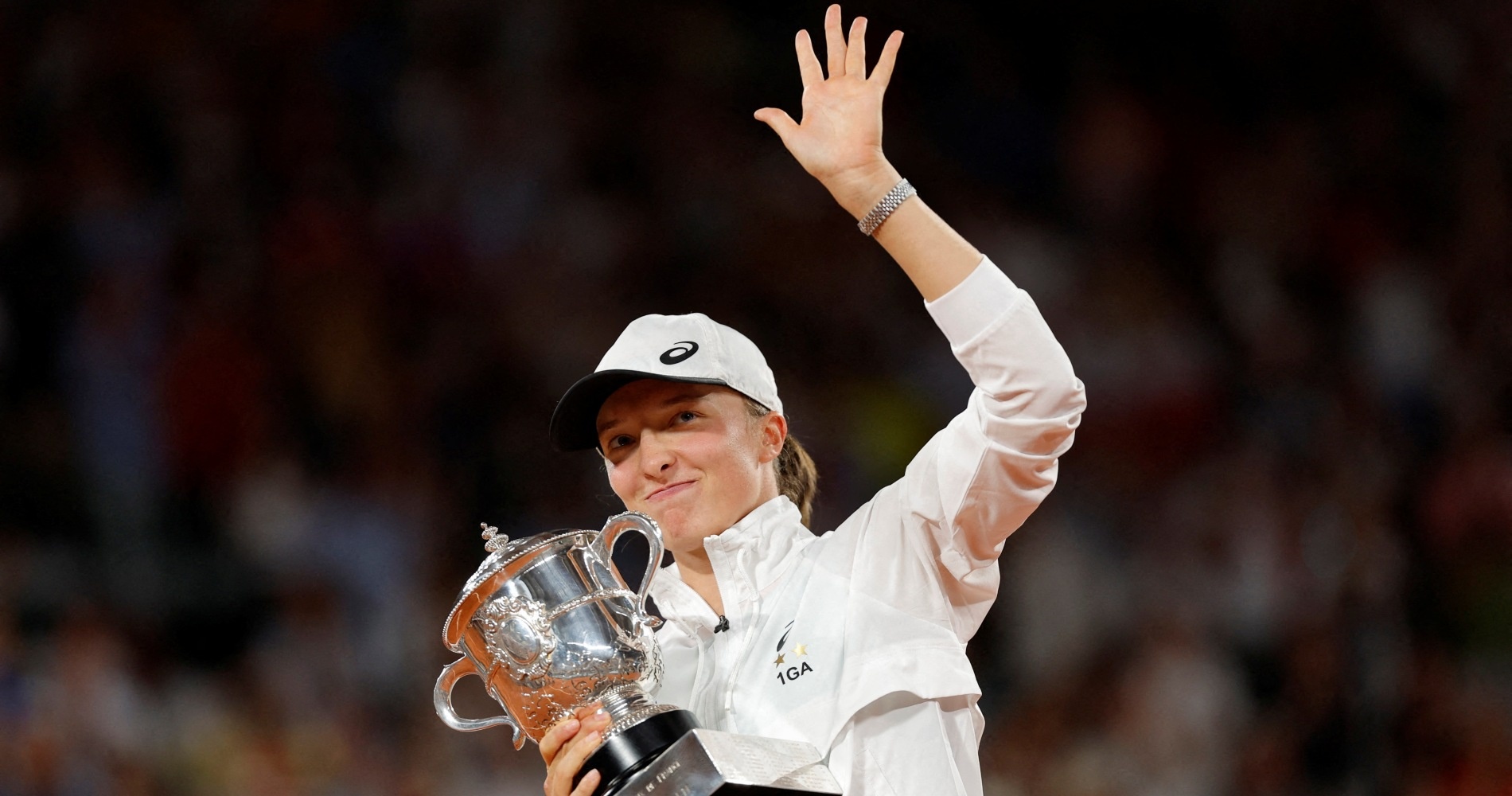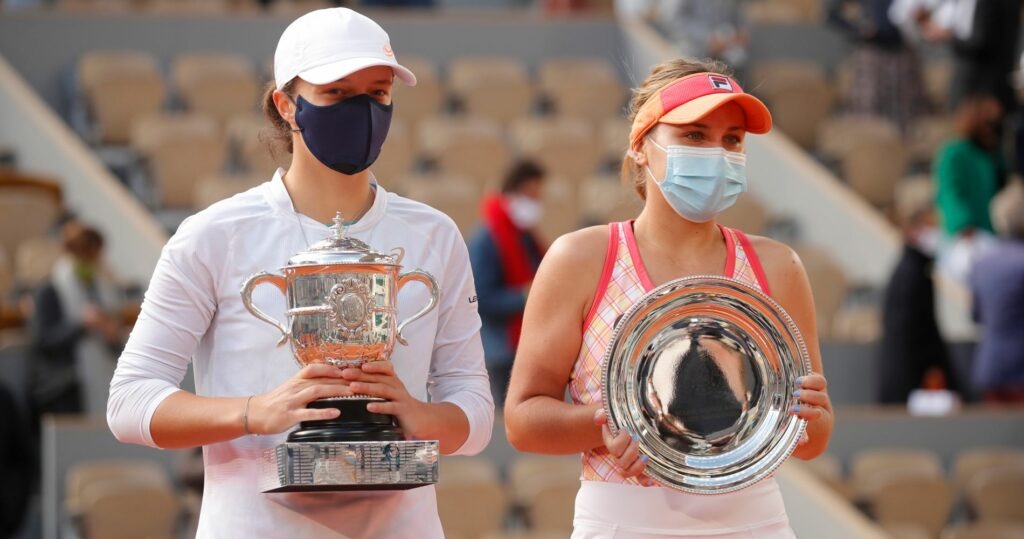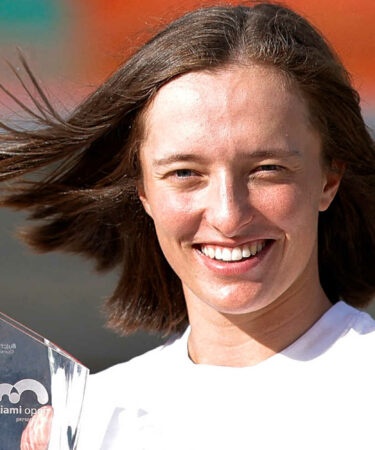Swiatek: Roland-Garros titles in 2020 and 2022 were completely different
Iga Swiatek said her Roland-Garros successes in 2020 and 2022 differed, although in both cases the Pole swept past the field
 Poland’s Iga Swiatek poses in front of the Eiffel Tower with the trophy after winning the women’s singles French Open title (AI/Reuters/Panoramic)
Poland’s Iga Swiatek poses in front of the Eiffel Tower with the trophy after winning the women’s singles French Open title (AI/Reuters/Panoramic)
Iga Swiatek said her victory at Roland-Garros in 2020 and the one she achieved Saturday in Paris couldn’t be more different.
You can understand why.
Even though she was an outstanding junior — winning at Wimbledon — Swiatek was a relative unknown on the tour and unseeded two years ago. She rolled to the title ranked 54th, not dropping a set and surrendering 28 games.
Swiatek entered the current edition as the world No 1 and carrying a 28-match winning streak, which meant she was the heavy favourite in the women’s draw. But the 21-year-old handled the pressure supremely, downing maiden Grand Slam finalist Coco Gauff 6-1, 6-3 in the finale.

In 2020…I just felt that I’m lucky
Iga Swiatek
Even though she did concede a set this time, her tally of games relinquished was only 33.
“I think in 2020 the main thing that I felt was confusion, because I have never really believed 100% that I can actually win a Grand Slam,” Swiatek told reporters. “This time it was pure work. Just with everything that was going on, I’m also more aware of how it is to win a Grand Slam and what it takes and how every puzzle has to come together and basically every aspect of the game has to work.
“With that awareness, I was even more happy and even more proud of myself, because in 2020 it was all…I just felt that I’m lucky. This time I felt like I really did the work.”
Outsiders might disagree with her being “lucky” during the fall edition, given the way the Warsaw native bulldozed through the draw. Her quality shone through.
FEWER FANS IN 2020
Swiatek defeated Gauff’s fellow American, Sofia Kenin, in the final in the first year of the pandemic — with attendance capped at 1,000 fans.
A full house greeted Swiatek and Gauff on Saturday, when the roof was needed due to rain in the French capital.
“I liked it more, for sure. It was kind of easier to focus, because with the empty, almost-empty stadium, you hear your every thought basically,” said Swiatek. “Here you can actually lean on the audience, and maybe sometimes if you’re a little bit stressed, just let yourself hear all these things and then you’re not hearing your own thoughts. So that’s pretty nice. I tried to use it that way sometimes.”

Swiatek and her big idol, Rafael Nadal, seemingly win events on the same weekend and it is on course to happen again.
Nadal — yes, the 2020 winner — tries for a record-extending 14th Roland-Garros crown on Sunday against eighth-seed Casper Ruud.
He will the heavy favourite against Ruud, another who idolised Nadal and practises at his academy in Mallorca.
PERSPECTIVE FROM RAFA
Swiatek took note of Nadal’s sense of perspective last year, after he lost in the semi-finals to Novak Djokovic.
“I think the best thing I can learn from him is how he’s cool about what’s going on around him,” said Swiatek. “Because sometimes in our heads, I think many players are overanalysing everything. We treat those finals as something that’s going to, if we are gonna lose suddenly, our life is bad.
“I feel like all these great champions, they kind of accept that they may lose.”
“I remember even last year when Rafa lost in semifinals, I met him the next day, coincidence, at breakfast in the hotel, and I said to him that I was crying basically the whole evening because he lost.
“He was sitting, and he was, like, ‘Oh, it’s just a tennis match. You win, you lose. It’s normal.'”
Swiatek’s normal at the moment is winning, and plenty of it.









It seems unfair to pinpoint a moment of weakness in a tennis pro such as Iga S. But the set she lost against Zheng reminded me of a couple of matches in 2020. Then she was a teenager, and so sensitivea person that she couldn’t avoid crying after losing an important game. She cried on court, she cried on her bench, and still cried when she restarted the following game. With Zheng, her reaction wasn’t perhaps crying tears but definitely yes crying for her own failures, her own nerves, her … not being ‘perfect’. She’s not a hero, she’s very, very humane. This last match with Zheng should make Iga think that even if she now has a whole team of professionals to help and guide her, she’s and always be fragile. A strong competitive woman, but fragile as glass. This is for sure my way of praising her: never forget Zheng, who made you go into the lockers after a lost set, and humbly re-read all those counsellings and advices you keep written in that notebook.